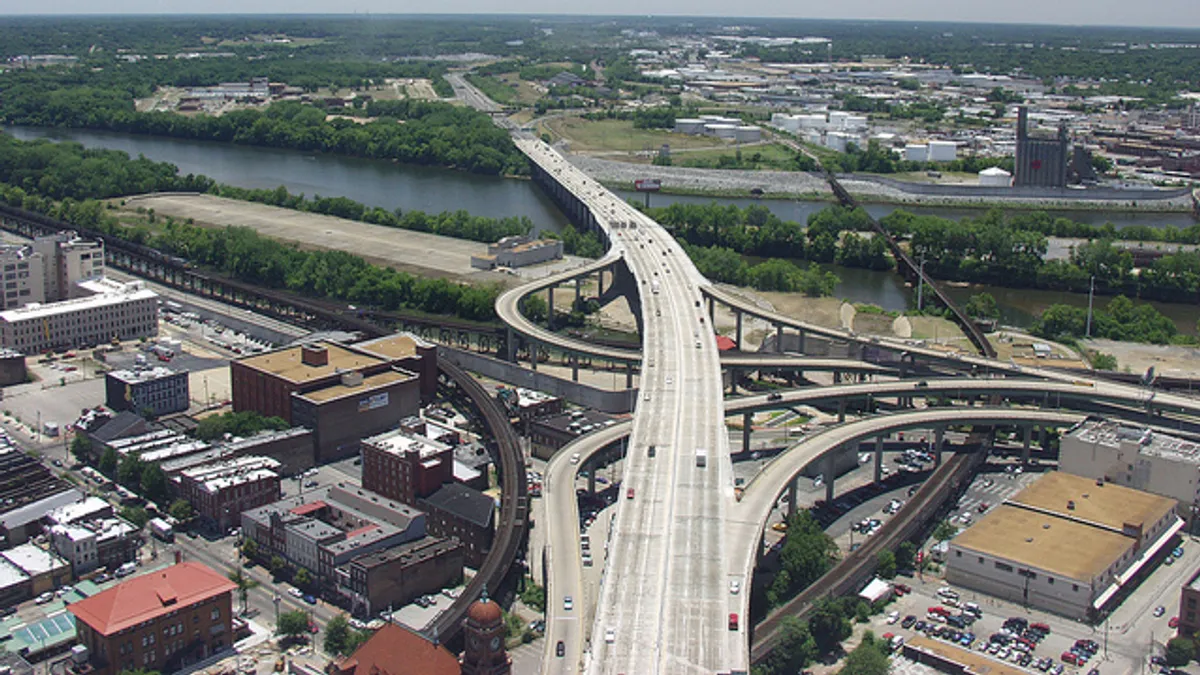Dive Brief:
- Nearly two-thirds of Washington, DC-area residents oppose the idea of congestion pricing in the city, according to a poll from The Washington Post and George Mason University’s Schar School. Only 34% of respondents supported the idea, compared to 63% who opposed.
- Support was highest among District residents, with 40% of respondents from inside District limits supporting the plan. In the Maryland suburbs, only 32% supported it; support was 34% among respondents from the Virginia suburbs.
- The DC Council voted last week to set aside nearly $500,000 to study congestion pricing, reports WTOP. The study, set to be made public by July 2020, would explore tolling options for roads entering the city and could lead to the institution of a congestion pricing plan.
Dive Insight:
New York became the first city in the U.S. to approve a congestion scheme last month to toll drivers who enter Manhattan’s business district. Details are still being worked out and the tolls won’t begin until at least late 2020, but other cities are already exploring their own options. A spokesman for Philadelphia Mayor Jim Kenney said the city was watching New York to see if a similar plan would work there; San Francisco, Los Angeles and Seattle have all also explored their own proposals.
The DC poll results, however, show that it could be an uphill battle to getting those plans approved. The poll, which had 1,507 respondents, did not examine a specific plan, but rather asked about a "policy that would charge vehicles a toll to drive into downtown Washington, DC during high-traffic times, in an effort to reduce traffic." People may feel differently knowing what the toll would be, who it would apply to and what the economic benefits would be. New York, for example, estimates the city could generate $15 billion for transit improvements over the next five years from the toll.
Speaking to The Washington Post, George Mason University professor and economist Stephen S. Fuller said drivers generally dislike the idea of additional costs, especially if they’re paying for parking and gas. Still, congestion pricing holds obvious appeal for city leaders, especially as a much-needed revenue generator for mass transit. New York’s experiment is likely to spur more imitators — including DC — but politicians will have to make sure they get the public on board.











